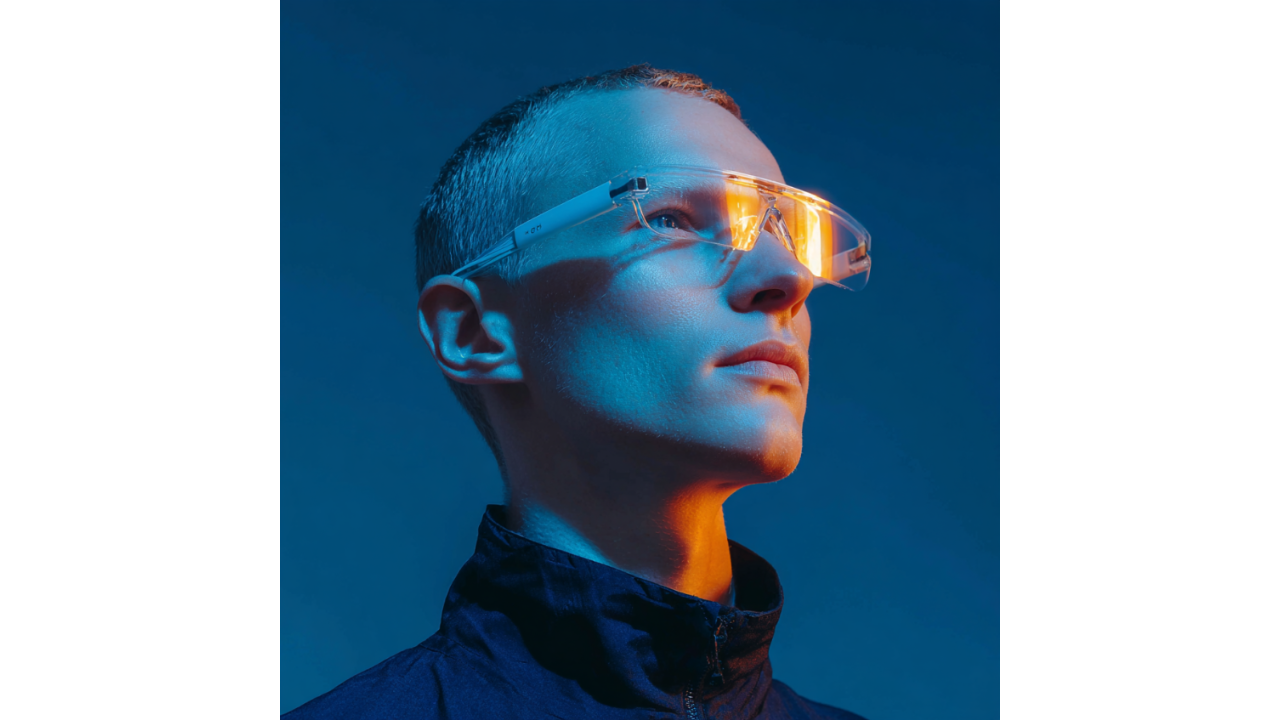3 min read
Could AI Make Smartphones Obsolete?
Here we go again. Every September, like clockwork, some breathless pundit declares the smartphone "passé" while Apple quietly prepares to sell...

HTC just announced the VIVE Eagle, a 49-gram pair of AI-powered smart glasses that integrates OpenAI's GPT models, Google Gemini, and HTC's own VIVE AI into a single wearable device. At $520, it's positioned squarely against Meta's Ray-Ban collaboration, entering a market that's experiencing unprecedented growth but still grappling with fundamental questions about what consumers actually want from their eyewear.
The timing tells a story worth examining: smart glasses shipments surged 210% year-over-year in 2024, driven primarily by Ray-Ban Meta's unexpected success, yet we're still in the early chapters of understanding how this category will develop.
The numbers paint a compelling picture of momentum. Global smart glasses shipments surged 210% YoY in 2024 driven by strong demand for Ray-Ban Meta smart glasses, with the market surpassing the 2-million-unit milestone for the first time. Meta led the market with over 73% share in the first half of 2025, establishing what appears to be a dominant position in a nascent category.
Yet context matters: 2 million units across all vendors represents a fraction of what successful consumer electronics categories typically achieve. For perspective, Apple sells more AirPods in a single quarter than the entire smart glasses market moved in 2024. The supply chain expects 2025 to be a "battle of hundreds of smart glasses", suggesting we're witnessing the category's formative expansion phase rather than its maturation.
The success of Ray-Ban Meta—priced at $299—appears to stem from solving several foundational problems that plagued earlier attempts: comfortable design, reasonable battery life, and functionality that feels additive rather than intrusive. The accumulated shipments of the Ray-Ban Meta have crossed the 1-million mark, making it the most successful display-less smart glasses to date.
HTC's VIVE Eagle presents an interesting alternative approach. Where Meta partnered with fashion icon Ray-Ban, HTC is leveraging its own brand heritage from the VR space. The device weighs less than 49 grams—comparable to Ray-Ban Meta—and features a 12-megapixel wide-angle camera, integrated speakers, and support for 13 languages of real-time translation.
The standout feature is HTC's multi-AI approach: rather than committing to a single assistant, VIVE Eagle allows users to access OpenAI's GPT models, Google Gemini, and HTC's own VIVE AI. This hedge-your-bets strategy acknowledges that the AI assistant landscape remains unsettled, particularly for specialized use cases like visual recognition and contextual queries.
Priced at NT$15,600 (approximately $520), VIVE Eagle is now available for pre-order in Taiwan, with broader availability plans still unclear. The premium pricing positions it above Meta's offering, suggesting HTC believes there's room for a more feature-rich alternative in the emerging market hierarchy.
The hardware specifications reveal both the possibilities and constraints facing the category. HTC emphasizes local data processing with anonymous external AI requests—a privacy-forward approach that contrasts with Meta's data collection practices. The glasses come with Qualcomm Snapdragon AR1 Gen 1 paired with 4GB RAM and 32GB storage, representing substantial computing power in a lightweight form factor.
Battery performance remains a critical limitation: VIVE Eagle offers up to 4.5 hours of music playback and 36 hours of standby time. These numbers, while competitive, underscore that smart glasses are still power-constrained devices requiring frequent charging—a significant user experience consideration that traditional eyewear never faced.
The inclusion of ZEISS lenses speaks to HTC's recognition that these devices must function as quality eyewear first, smart devices second. This lesson from Ray-Ban Meta's success—that aesthetic and optical quality matter as much as technological capability—appears to be informing the broader industry approach.
The entrance of established players like HTC, alongside rumored developments from Samsung, Apple, and Chinese manufacturers, signals growing confidence in the category's potential. Counterpoint expects the global smart glasses market to flourish going forward, achieving 60% YoY growth in 2025 and sustaining a CAGR of over 60% through 2029.
Yet significant questions remain unresolved. Consumer use cases are still being discovered rather than clearly established. Early adopters report using smart glasses primarily for hands-free photography, basic AI queries, and music playback—useful but not transformative applications that justify widespread adoption.
The privacy implications continue to generate legitimate concerns, particularly as these devices become more capable of continuous environmental recording and analysis. HTC's emphasis on local processing and anonymous AI requests addresses some concerns, but the broader societal questions about ubiquitous recording devices remain unresolved.
For marketing leaders, smart glasses represent both opportunity and uncertainty. The devices offer unprecedented potential for location-based experiences, visual search integration, and contextual advertising—assuming users adopt them broadly enough to create meaningful audiences.
The multi-AI approach of HTC's VIVE Eagle particularly intrigues from a customer experience perspective. Rather than forcing users into a single AI ecosystem, it allows brands to potentially engage through whichever assistant proves most effective for specific queries or contexts. This flexibility could prove valuable as the AI assistant landscape consolidates around winners that haven't yet been determined.
However, the current user base remains extremely limited. Even optimistic growth projections suggest smart glasses will remain a niche category for several more years, making them more relevant for experimental marketing initiatives than core strategy development.
HTC's VIVE Eagle represents a competent entry into a market still defining itself. The hardware appears well-executed, the pricing reflects premium positioning, and the multi-AI approach demonstrates strategic flexibility. Whether these advantages prove meaningful depends on factors largely outside HTC's control: broader consumer acceptance of smart glasses, resolution of privacy concerns, and the development of compelling use cases beyond current capabilities.
The smart glasses category is experiencing genuine momentum, but from a very low baseline. Meta's dominance, while impressive in percentage terms, reflects early-mover advantage in a market that hasn't yet reached mainstream consideration. HTC's entry—along with other announced competitors—will test whether there's room for multiple successful approaches or whether network effects and ecosystem advantages will create winner-take-all dynamics.
For now, smart glasses remain a "watch and wait" technology for most marketers: promising enough to monitor closely, not yet mature enough for significant investment.
Ready to experiment with emerging tech opportunities while they're still manageable? Winsome Marketing's growth experts can help you identify which new platforms deserve your attention and resources.

3 min read
Here we go again. Every September, like clockwork, some breathless pundit declares the smartphone "passé" while Apple quietly prepares to sell...
-2.png)
Amazon wants its delivery drivers to wear smart glasses that provide turn-by-turn directions to your front door, hands-free package scanning, and...

The maritime industry just experienced something rare: a collective moment of clarity. After watching ship fires reach their highest level in a...